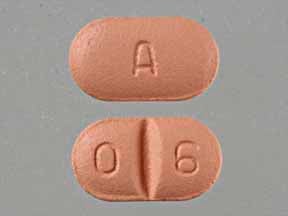
Celexa Coupons & Savings Card – Discount Prices from $16.68
Brand for: Citalopram
My prescription
Edit
20MG, Citalopram (90 Tablets)
Select pharmacy

CVS
$28.19
COUPON PRICE
Albertsons
$16.68
COUPON PRICE
Walgreens
$20.72
COUPON PRICE
Walmart
$40.13
COUPON PRICECelexa savings card
Show this card to your pharmacist
Albertsons
$16.68
BIN
ID
PCN
GRP
015995
LHKPX744256
GDC
DR33
Powered by
Related SSRIs prescriptions
More prescriptions for depression
Related SSRIs prescriptions
More prescriptions for depression
Price history for Celexa (brand) & Citalopram (generic)
90 Tablets, 20MG
Average retail price for Celexa
Average retail price for Citalopram
Average SaveHealth price for Citalopram
Our price history data is based on aggregated prescription data collected from participating pharmacies in America. Our prescription data updates daily to reflect the latest price changes. If you notice a missing data point, it means there wasn't sufficient data available to generate a monetary value for that date.
Over the last 12 months, the average discount price of Celexa is $29.08 using the SaveHealth savings card. That's an average savings of 92.01% on Celexa with our discount card.
*Retail prices are based on pharmacy claims data, and may not be accurate when we don't have enough claims.
Celexa (Citalopram) dosage forms
Dosage Quantity Price from Per unit 10MG 1 Tablet $9.03 $9.03 10MG 5 Tablets $9.13 $1.83 10MG 30 Tablets $9.77 $0.33 10MG 60 Tablets $10.55 $0.18 10MG 90 Tablets $17.27 $0.19 10MG 100 Tablets $17.52 $0.17 10MG 360 Tablets $24.08 $0.07 10MG 500 Tablets $27.61 $0.06 10MG 1000 Tablets $40.22 $0.04 10MG 9990 Tablets $236.09 $0.02
| Dosage | Quantity | Price from | Per unit |
|---|---|---|---|
| 10MG | 1 Tablet | $9.03 | $9.03 |
| 10MG | 5 Tablets | $9.13 | $1.83 |
| 10MG | 30 Tablets | $9.77 | $0.33 |
| 10MG | 60 Tablets | $10.55 | $0.18 |
| 10MG | 90 Tablets | $17.27 | $0.19 |
| 10MG | 100 Tablets | $17.52 | $0.17 |
| 10MG | 360 Tablets | $24.08 | $0.07 |
| 10MG | 500 Tablets | $27.61 | $0.06 |
| 10MG | 1000 Tablets | $40.22 | $0.04 |
| 10MG | 9990 Tablets | $236.09 | $0.02 |
| 20MG | 90 Tablets | $17.60 | $0.20 |
| 20MG | 1 Tablet | $9.03 | $9.03 |
| 20MG | 14 Tablets | $9.42 | $0.67 |
| 20MG | 15 Tablets | $9.45 | $0.63 |
| 20MG | 30 Tablets | $9.91 | $0.33 |
| 20MG | 33 Tablets | $10.00 | $0.30 |
| 20MG | 45 Tablets | $10.36 | $0.23 |
| 20MG | 52 Tablets | $10.57 | $0.20 |
| 20MG | 60 Tablets | $10.81 | $0.18 |
| 20MG | 100 Tablets | $17.89 | $0.18 |
| 20MG | 120 Tablets | $18.47 | $0.15 |
| 20MG | 360 Tablets | $25.41 | $0.07 |
| 20MG | 500 Tablets | $29.46 | $0.06 |
| 20MG | 1000 Tablets | $43.92 | $0.04 |
| 20MG | 5600 Tablets | $143.90 | $0.03 |
| 40MG | 1 Tablet | $9.04 | $9.04 |
| 40MG | 15 Tablets | $9.63 | $0.64 |
| 40MG | 30 Tablets | $10.26 | $0.34 |
| 40MG | 33 Tablets | $10.39 | $0.32 |
| 40MG | 45 Tablets | $10.89 | $0.24 |
| 40MG | 60 Tablets | $11.52 | $0.19 |
| 40MG | 90 Tablets | $19.07 | $0.21 |
| 40MG | 100 Tablets | $19.53 | $0.20 |
| 40MG | 120 Tablets | $20.43 | $0.17 |
| 40MG | 135 Tablets | $21.11 | $0.16 |
| 40MG | 360 Tablets | $31.29 | $0.09 |
| 40MG | 500 Tablets | $37.63 | $0.07 |
| 40MG | 1000 Tablets | $55.30 | $0.06 |
| 40MG | 2800 Tablets | $107.50 | $0.04 |
What does Celexa do for a person?
Celexa, which contains the active ingredient citalopram, is an antidepressant medication that belongs to the class of selective serotonin reuptake inhibitors (SSRIs). It is primarily used to treat major depressive disorder by increasing the levels of serotonin, a neurotransmitter in the brain that helps maintain mental balance. This can help improve mood, sleep, appetite, and energy levels while reducing feelings of anxiety and depression.
Is Celexa similar to Xanax?
Celexa and Xanax are not similar. Celexa is an antidepressant in the selective serotonin reuptake inhibitor (SSRI) class, primarily used to treat depression. Xanax, on the other hand, is a benzodiazepine used to treat anxiety and panic disorders. They work differently in the brain and are used for different conditions.
What is the biggest side effect of Celexa?
The biggest side effect of Celexa (citalopram) is often considered to be its potential to cause or exacerbate suicidal thoughts or behaviors, particularly in young adults and adolescents. It is important for patients to be closely monitored for any changes in mood or behavior, especially when starting the medication or adjusting the dose. Other common side effects include nausea, dry mouth, and drowsiness.
What is the black box warning on Celexa?
Celexa (citalopram) carries a black box warning for an increased risk of suicidal thoughts and behaviors in children, adolescents, and young adults, particularly during the initial treatment period or when the dose is adjusted. It is important for healthcare providers to monitor patients closely for any changes in behavior or mood. Celexa is not approved for use in pediatric patients.
What is Celexa used for besides depression?
Celexa, also known by its generic name citalopram, is primarily used to treat depression. However, it is also prescribed for other conditions such as anxiety disorders, panic disorders, and obsessive-compulsive disorder (OCD). It may be used off-label for other conditions as determined by a healthcare provider.
